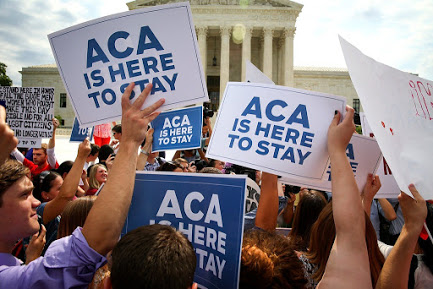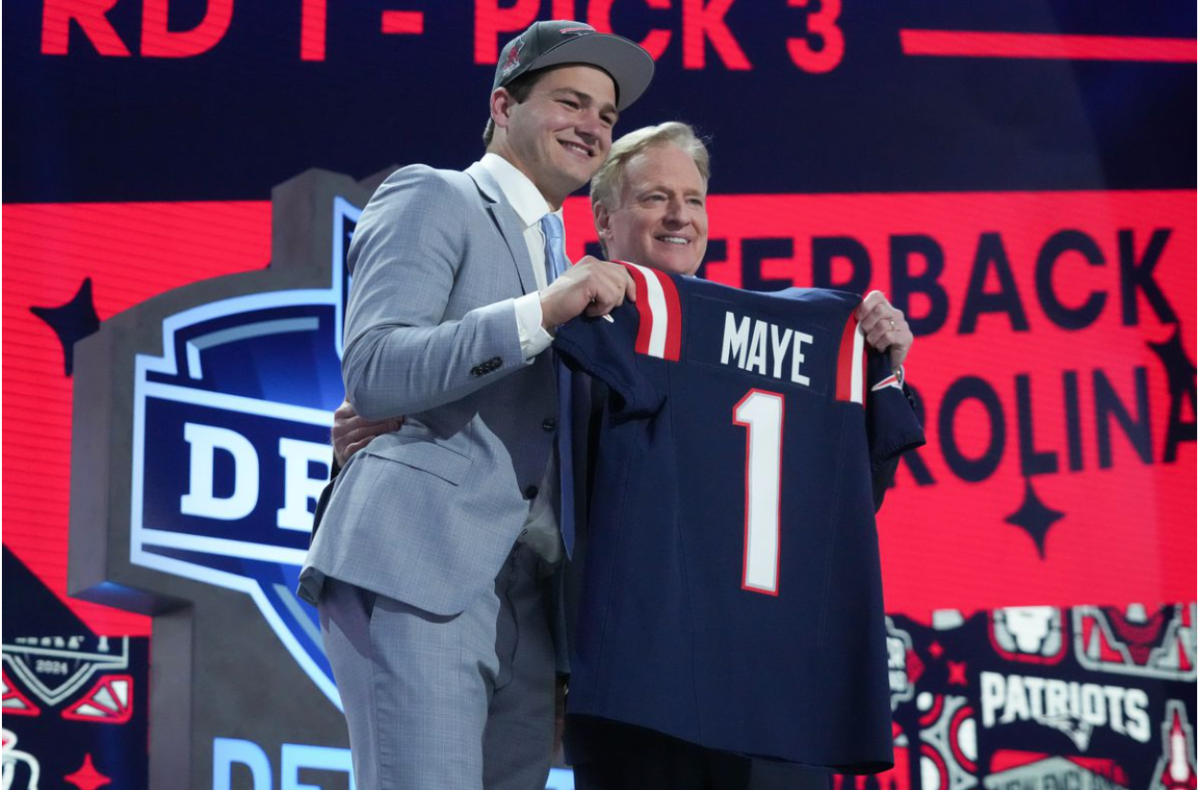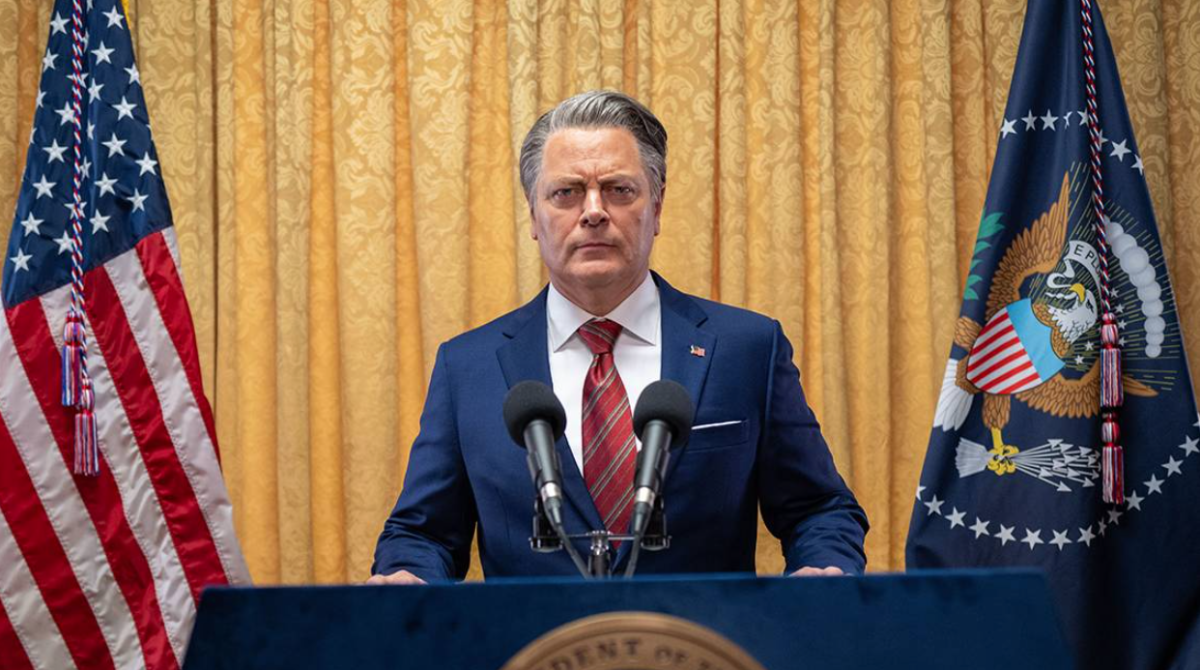The Supreme Court Hears Case for the Affordable Care Act

Supporters of the Affordable Care Act outside the Supreme Court in 2015. The Affordable Care Act faced the Supreme Court again this week.
November 15, 2020
This Tuesday, November 10, 2020, the United States Supreme Court heard the oral arguments in the case of California v. Texas, which concerns the constitutionality of the Affordable Care Act. This highly anticipated case comes about a week after the Election, as well as Justice Amy Coney Barrett’s controversial confirmation to the Supreme Court.
Also known as Obamacare, the Affordable Care Act was passed by the Obama Administration in 2010 as a comprehensive health care reform law. In 2012, the Affordable Care Act was unanimously upheld by the Supreme Court against a constitutional challenge that characterized the penalty imposed by Congress for not buying health insurance as a tax. In 2015, another case regarding the tax penalty also reached the Supreme Court.
In 2017, the Trump administration removed, the Individual Shared Responsibility Payment, the tax for those who can afford health insurance but choose not to buy it. This change went into effect in 2019.
The case comes after repeated efforts to undermine the Affordable Care Act, especially under the Trump Administration and from President Trump himself.
During this week’s oral arguments, Kyle D. Hawkins, representing the state of Texas and opposing the Affordable Care Act, argued that the tax penalty ruled constitutional in the 2012 case NFIB v. Sebelius. Hawkins argued that the act was “Unconstitutional [because] it is a naked command to purchase health insurance, and, as such, it falls outside Congress’s enumerated powers.”
Further, he argued “the legislative findings declaring the mandate essential require this Court to conclude… that the mandate is inseverable from the remainder of the law.” General Hawkins claimed that the 2017 amendment, which zeroed the tax, required the Court “To tear down the entire ACA” because “If this single provision is now unconstitutional, then every other provision of the Act must also fall.”
In response to the question of whether the law should remain after removing the 2017 amendment, Chief Justice John Roberts stated, “We ask ourselves whether Congress would want the rest of the law to survive if an unconstitutional provision were severed.” Noting that “Congress left the rest of the law intact when it lowered the penalty to zero,” he stated that, “that seems to be compelling evidence on the question.”
Similarly, Justice Brett Kavanaugh stated that according to certain severability precedents, “It does seem fairly clear that the proper remedy would be to sever the mandate provision and leave the rest of the Act in place, the provisions regarding preexisting conditions and the rest.”
The other Supreme Court Justices agreed, pointing out that despite the concerns against the Affordable Care Act, there was no proof that Texas and the other conservative states would be harmed.
In other words, the Republican officials, who oppose the Affordable Care Act on the basis that the zeroed-out tax penalty is inseverable from the rest of the law, argued that the entire law must be dismantled if the tax penalty is removed, including protections for individuals with preexisting conditions. However, the Supreme Court justices appear to reject this argument because Congress intended to leave the rest of the law unchanged.
The New York Times and other major news outlets all bore headlines suggesting that the Supreme Court justices, including the Court’s more conservative justices, would uphold the Affordable Care Act for now.
Regarding the possibility of the repeal of the Affordable Care Act, Hingham High School juniors Kate Schembri and Miranda McGeoghegan gave their opinions.
Miranda McGeoghegan felt that “there’s a lot of risks if we lose the Affordable Care Act, especially for people who are already facing a lot of struggles.” She said, “I’m really hoping they don’t overturn it as it’s necessary for so many people!”
Similarly, Kate Schembri thought that “Access to health care should not be a significant financial burden.” Furthermore, Schembri stated, “The Affordable Care Act is a crucial element in our nation that provides less expensive health insurance for those with low and moderate-income,” which “Currently in place, alleviates some of the stress that comes with expensive insurance.” Additionally, Schembri said that she saw “The latest effort by President Donald Trump to derail Obama’s incredible achievement, the Affordable Care Act, [as] incredibly disheartening.”
Further, Schembri noted, “Trump’s current plan to use the highest court in the nation to propose the abolishment of this act is frightening to me, as I believe that getting rid of the Affordable Care Act would reduce access to healthcare for those with lower incomes and in turn worsen the already existing socioeconomic inequalities in our nation.”


































